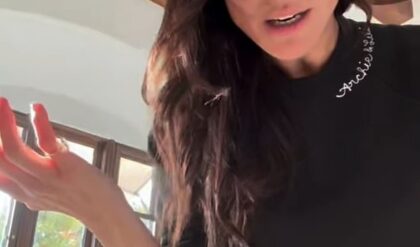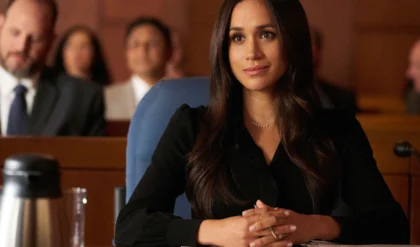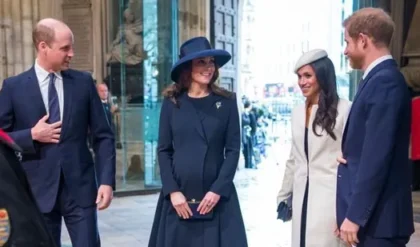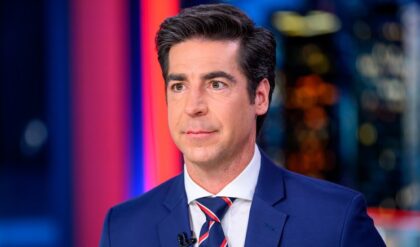As anyone with the internet will have seen by now, Dragon Age: The Veilguard features a non-binary companion. More to the point, it uses that language specifically to describe them. This has been an intense topic of debate ever since the game launched, and even leaving aside those who simply do not wish to see non-binary people (or anyone who is diverse and yet not hot) in a video game, Taash remains a bone of contention. So how immersion breaking is it to have Taash use modern language like this?
The real answer, which often gets lost in the shuffle of the outrage machine, is that it’s as immersion breaking as you think it is. You’re allowed to think Taash using modern language feels out of place in this pseudo-medieval setting without it making you an evil or hateful person, just as you’re allowed to find comfort in these words being spoken so plainly. But there may be more to this than a simple yes or no – this may be a non-binary situation.
The Pros And Cons Of Modern Language In Fantasy Games
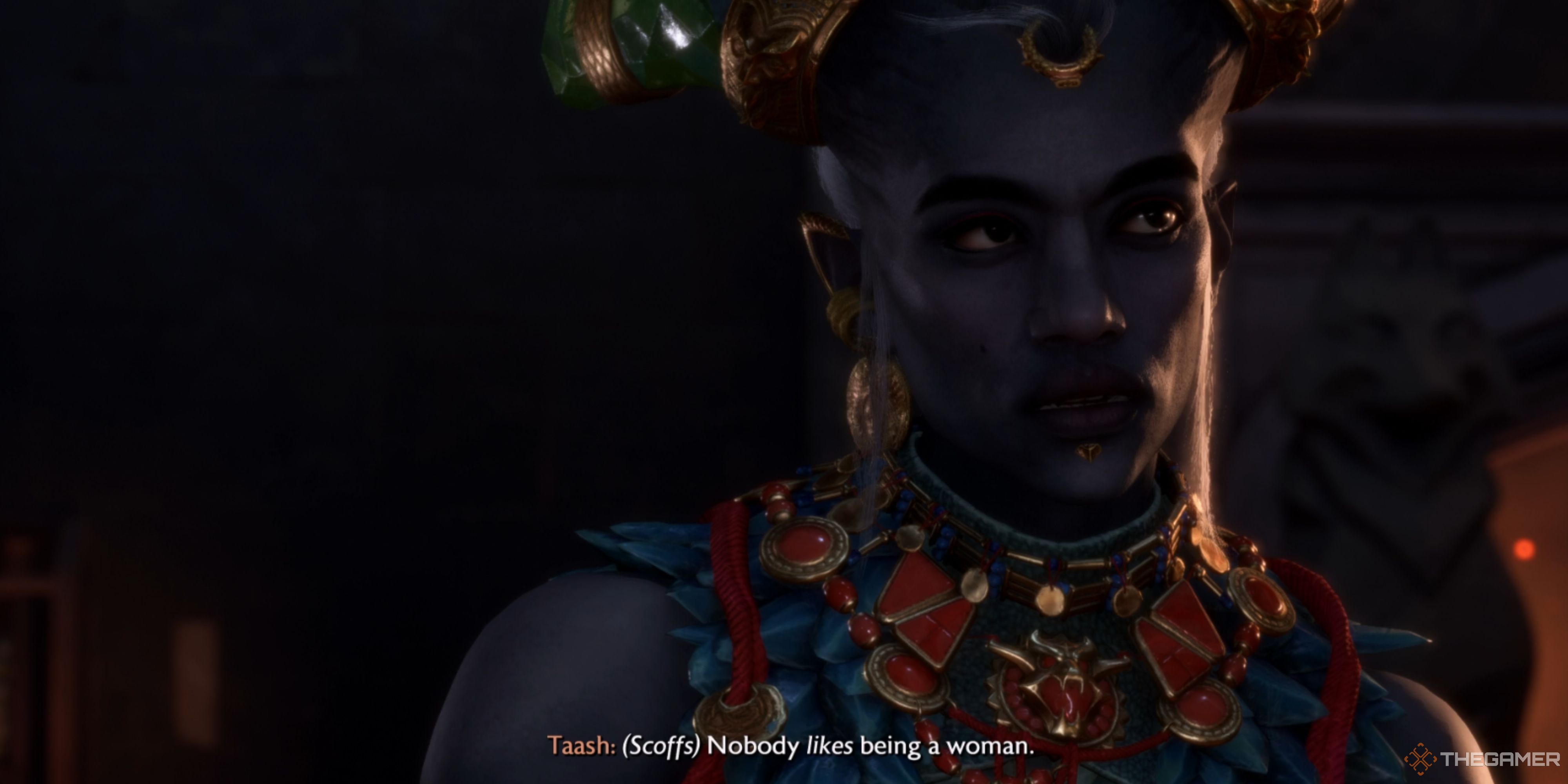
The term ‘non-binary’ has existed since the 1940s, but wasn’t applied to gender until the ’90s, gaining steam in the ’00s and becoming relatively common parlance by the mid ’10s. ‘Transgender’, on the other hand, did not exist until the 1960s, but entered household use much earlier than ‘non-binary’, in the early ’90s. While Dragon Age is not a real piece of history, it would be fair to say the era it is inspired by is further back than the 1940s (or ’60s, or ’90s, or mid ’10s…), and therefore, this language is out of place.
But that’s true of a lot of Dragon Age, and fantasy storytelling in general. These types of stories talk about arrows being ‘fired’, but that wouldn’t be used to mean ‘aiming ammo at a target’ until the invention of handguns. Arrows, instead, were ‘loosed’. The banter between companions (less mean in The Veilguard) has often been based on modern friendship dynamics. Many of the struggles faced by the various communities are analogous to modern day issues. Varric’s book signing is anachronistic.
There are some things we let slide, possibly because we don’t realise these are moments out of time, or possibly because we give them a pass since it’s funny. Historically, the cast would be appropriately divided between uneducated to the point of stupor with the inability to read, write, or hold much of a conversation, or else speak in out-dated linguistic patterns like Morrigan. It makes for a better game that Dragon Age is not so loyal to ‘real’ history, and so we don’t complain.
Why ‘Non-Binary’ Is A Sticking Point
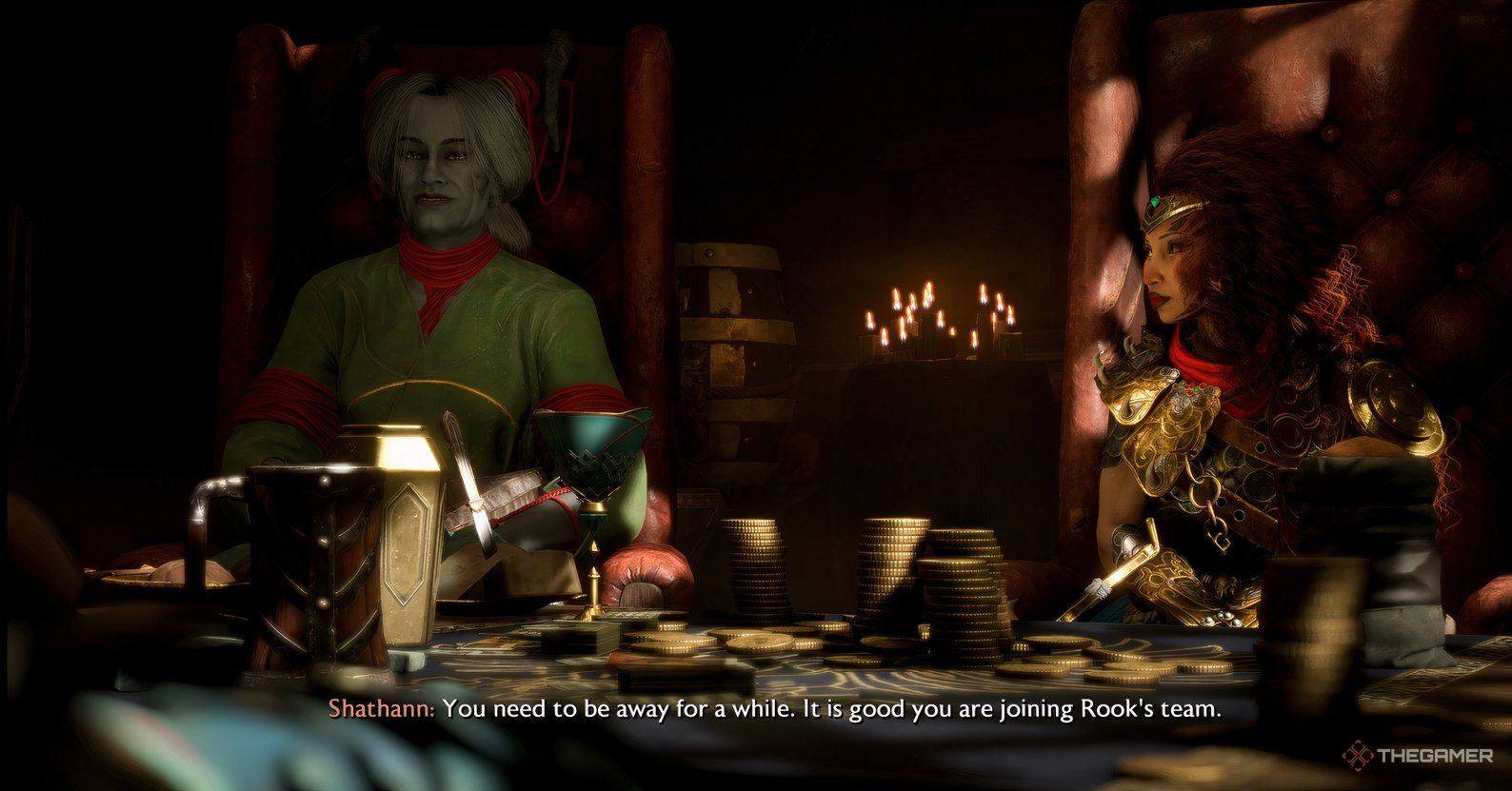
But ‘non-binary’ is different. It is a very modern word, more modern than its 1940s roots suggest. It calls to mind both computers (which, obviously, did not exist in Thedas) and the current era of transgender rights. Around the time ‘transgender’ as a word gained a foothold in society, ‘non-binary’ was still going under the umbrella ‘genderqueer’. Not only is it a much younger word, it’s a word that sounds, aesthetically, out of place in The Veilguard.
The origin of the word (not that 1940s is sufficiently old enough anyway) is a poor argument against how a word hits your ear. In one scene, Rook says Assan is “feeling his oats”. I associate this phrase with RuPaul’s Drag Race (and drag subculture in general), where it means strutting your stuff and feeling confident. However, it dates back to the 19th century and meant an animal in a particularly happy mood. While it is technically used in the latter sense, I don’t doubt that it was inspired by the former, and referencing a modern TV show in Dragon Age immediately hit my own ear wrong, so I get it.
However, I don’t think it’s so simple. In Inquisition, there was a trans character (Krem), but he didn’t use the word ‘transgender’, and a Qunari word that sounded more fantastical was made up to fit the world. But it also, to me as a trans woman, felt like an excuse for not committing to the bit. He’s not really trans, he’s this fictional thing. This became a pattern for gaming in The Last of Us Part 2, where Lev also does not use the word ‘transgender’, despite being trans. He doesn’t have a word he substitutes in, but it’s waved away by the fact his traditional (possibly even barbaric) religion would not teach him of such things or even provide language for it.
The Last of Us has always been inconsistent with queer representation, on one hand being led by a lesbian and featuring a trans boy, on the other hand living in a world that has forgotten Pride but remembers Jurassic Park and Pearl Jam.
Taash Feels Like A Response To Krem
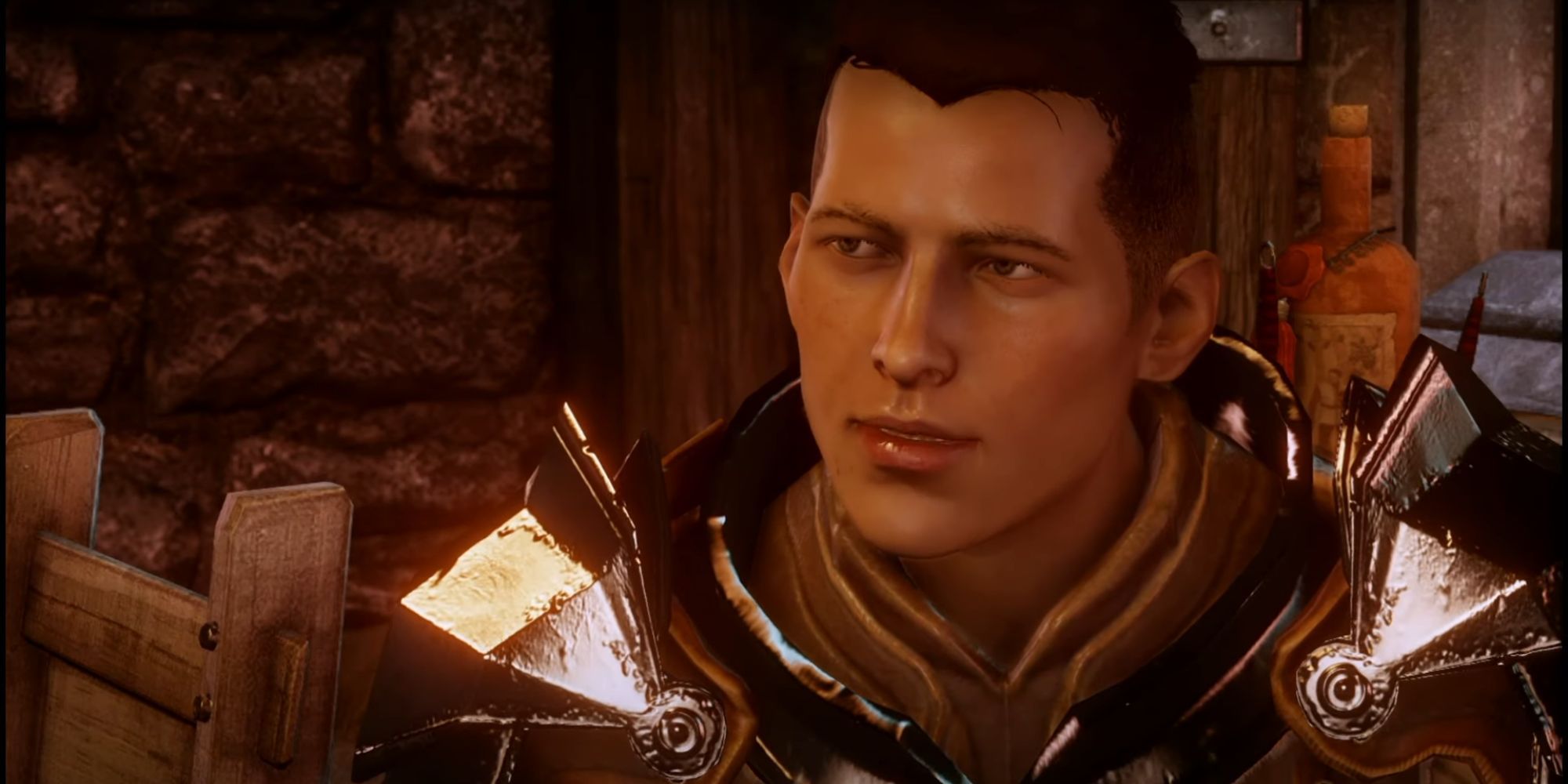
This means that Krem’s depiction, while bold and progressive and important, always had a touch of cowardice about it. The Veilguard being directed by a trans woman is probably a large part of why Rook actually being trans feels authentic, and why the cowardice is cut through with Taash. In Taash’s personal diary, they write about ‘identifying as non-binary’, then cross it out for ‘I am non-binary’. The ‘identify’ has been so thoroughly co-opted and diluted by performative allies and bad actors that many queer people have rejected it, and Taash’s feelings strike at the heart of that.
Taash’s scene with their mother, when she suggests Taash instead use a Qunari word, also feels like a rejection of ‘the Krem route’. Taash is not some more approachable, hollow, easily overlooked made up fantasy nonsense. They are not Krem, where players are left to wonder if that ‘really’ means they are trans. In a way, modern language is used deliberately, and this scene directly addresses the audience, which makes it more immersion breaking for some. But for others like myself, it is a defiance of modern gaming conventions where trans people can be hidden away out of convenience while still reaping the praise that comes with being progressive.
This all brings us back to where we started. It’s as immersion breaking as it is for you, and the sound and history of non-binary may just be too modern for many people. But I am relieved to finally hear a game say the loud part loud and understand so completely not only the terms it uses, but the way it uses them. Taash is non-binary and not some fictional concoction of guttural consonants because they offer real representation to real non-binary people, and I wouldn’t have it any other way.
